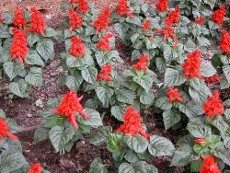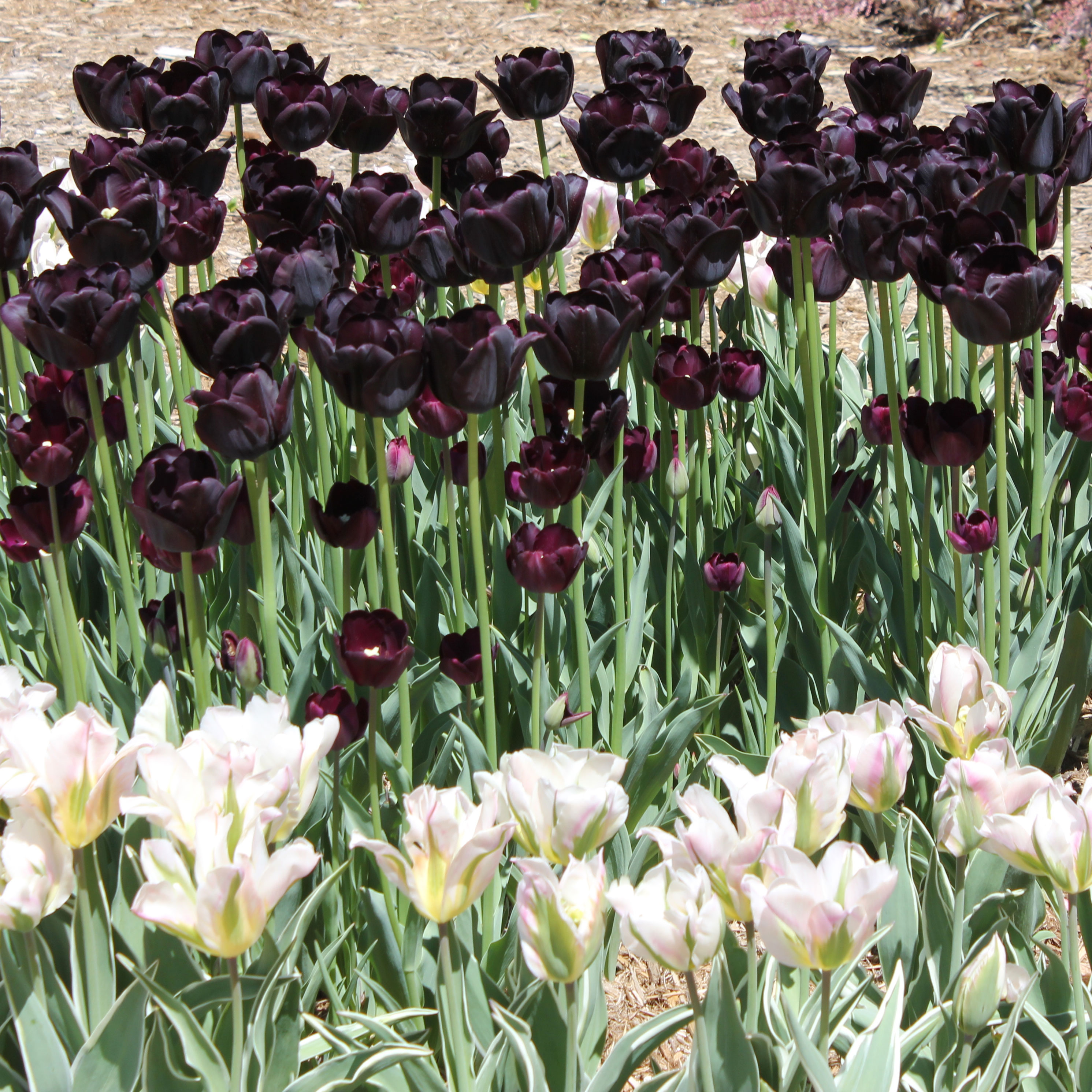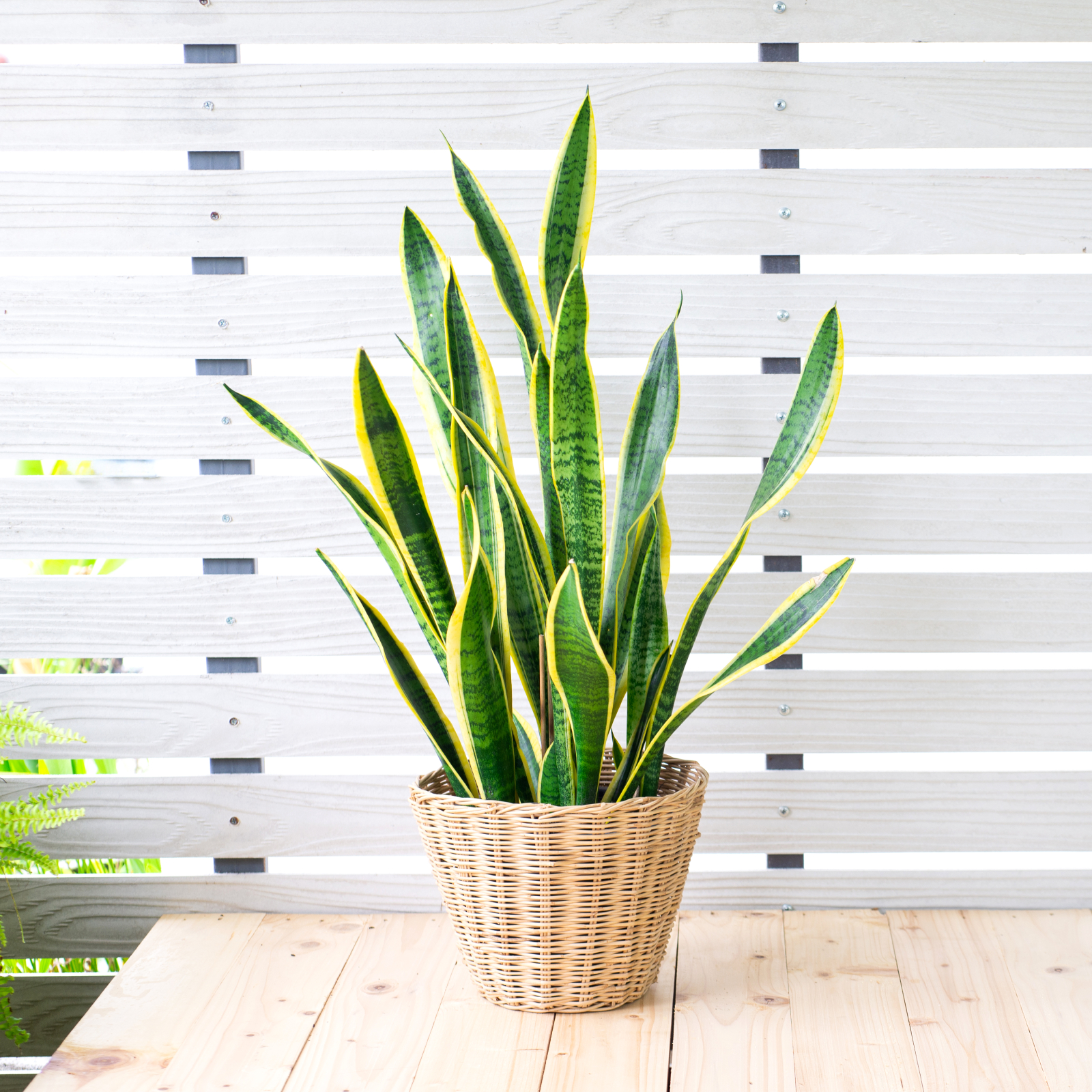Top 10 Plants for Office Gardens


Office gardens may take a little extra effort and money to put in and maintain, but you and your staff will reap many benefits. Even small potted gardens can provide stress relief, cleaner air, and something pleasant to look at. There is even evidence that an office garden can boost worker productivity and help generate more ideas and improve inspiration. Building an office garden doesn't have to be hard, and can involve simply adding potted plants to desks and common areas. As you plan your office garden, consider some of the best choices for plants to include such as the following top 10 selections for office gardens: Philodendron. Philodendron is a very popular houseplant not only because it looks nice but also because you can virtually ignore it for weeks and it will not die. This is for anyone lacking a green thumb, and also for plant lovers. The attractive, heart-shaped leaves can be green or variegated and grow along vines. You can use philodendron in hanging baskets or put it on a surface and give it something to climb. Pothos. This is a plant similar to philodendron and another option for a low-maintenance container plant that adapts well to most conditions. Like philodendron, it has heart-shaped leaves but with a different coloring pattern: green with white or yellow spots. It will add to the visual interest of your office garden without adding much more work. Spider plant. This is another low-maintenance plant that is both easy to care for and attractive. It produces pretty, slender leaves, often with a yellow stripe down the middle. Spider plant also produces what are often called spiderettes, smaller clusters of leaves. Cut these off to start additional plants. Put your spider plant on a shelf, desk, or other surface and only water it occasionally to get good results. This is also a good choice for hanging baskets to add vertical space to your office garden. It doesn't require full sun and should thrive in shade or with only indirect light. Succulents. These fleshy-leaved plants are low-maintenance because they do not require a lot of watering. However, they do need a lot of direct light, so they only work in an office if you have a sunny window. If you do, enjoy the pleasing aesthetics of a jade plant, aloe, donkey tail, hens and chicks, and other fun-named succulents. Many varieties are small and can be planted together in a container to make a succulent garden. Peace lily. The peace lily requires slightly more maintenance in that it needs more watering, but it will rebound easily if it gets forgotten for a while. These are shade-loving plants, so you won't need a bright, sunny window. The peace lily produces large, flat, dark green leaves, and gorgeous white flowers. An occasional feeding with fertilizer will promote more blooms, and as it grows larger you may need to transplant the peace lily to subsequently bigger pots. In addition to its pretty flowers, the peace lily is a great office plant because it ranks high for plants that are capable of absorbing pollutants from indoor air. Dwarf date palm. Another plant that is rated excellent for removing indoor air pollutants is the dwarf date palm. This smaller tree grows slowly, so it won't become a towering tree out of proportion with your office. It grows upright with a sturdy trunk and fronds at the top that droop down and grow to about three feet in length. The dwarf date palm tolerates shade and the indirect sunlight typical of an office setting. Lemon balm. Using herbs for your office garden is generally risky, as not everyone agrees on the sometimes strong smells they produce. Lavender is lovely to some people and strongly medicinal to others. Most people, though, will agree that the light scent of lemon is refreshing and invigorating. Lemon balm grows well in pots, thrives without a lot of sunlight, is very hardy, and may just boost mood with its pleasant lemony aroma. Lemon balm does need regular watering and will not tolerate the soil drying out too much. Snake plant. This is a striking plant with long, straight leaves that stick upright up from the container. While there are a number of varieties to choose from, most exhibit leaves that are dark green with yellow edges, and they grow tall. This makes the snake plant a good screen or a focal point for an office garden. It is also easy, low-maintenance, and forgiving if you forget to water it regularly. In fact, the plant even thrives on neglect. Air plants. These trendy houseplants are great for the indoors because they need no soil to grow. Known scientifically as epiphytes, these are plants that absorb nutrients from the air. There are hundreds of varieties of these plants, which are often sold in small sizes so they can be placed in decorative glass bowls or arranged together. These plants make for a pretty arrangement, but they need humidity to thrive, so they must be misted regularly. African violet. This blooming plant is compact, so it makes a good choice for smaller spaces. It also adds color and flowers to an office space. They don't require a lot of light, but they do have some higher maintenance needs. African violets should be watered without splashing the leaves, and they grow best when given a special fertilizer (15-30-15) high in phosphorous to promote new growth and flowers. Growing an office garden is a great way to boost morale in the workplace. Everyone enjoys and benefits from having green plants around, even those who are not necessarily gardeners or very skilled when it comes to growing things. To start crafting your new office garden, try out these great plants that require little maintenance but give a lot in return. And then check out Jason L office furniture to find the best pieces to go with your new plants and to create the most efficient yet inviting workplace for your staff.
Gardening tips, videos, info and more delivered right to your inbox!
Sign up for the Gardening Know How newsletter today and receive a free copy of our e-book "How to Grow Delicious Tomatoes".

Mary Ellen Ellis has been gardening for over 20 years. With degrees in Chemistry and Biology, Mary Ellen's specialties are flowers, native plants, and herbs.
-
 Moody Blooms For Spring: 8 Types Of Black Flowers To Add Drama To Spring Displays
Moody Blooms For Spring: 8 Types Of Black Flowers To Add Drama To Spring DisplaysFrom midnight burgundies to inky violets, several types of black flowers can enrich and embolden a spring display. Try these brooding bloomers for a moody garden
By Tonya Barnett
-
 Can Snake Plants Live Outside? Everything You Need To Know For Snake Plants Al Fresco
Can Snake Plants Live Outside? Everything You Need To Know For Snake Plants Al FrescoSnake plants can live outside given the right conditions, but be careful that they don't take over! Learn the best way to use snake plants in your landscape.
By Mary Ellen Ellis